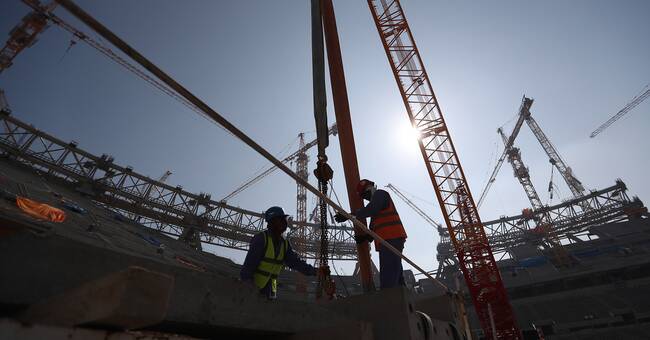Ten years ago, Qatar was awarded the 2022 World Cup for men. Since then, the exploitation of low-paid migrant workers has been reported several times. In Qatar, the workforce consists of 95 percent foreign guest workers and from 2010 to 2018, the migrant workers in the country increased from 1.6 to 2.6 million people.
In Human Rights Watch's new report, the organization has looked extra closely at workers' rights to a fair wage. 93 migrant workers have been interviewed in Qatar. Not everyone works directly with the World Cup, but most are connected to the World Cup with various infrastructure projects and hotels.
- The report shows abuses of trade union rights for the foreign workers working in Qatar ahead of the 2022 FIFA World Cup. It is often under threat that you will not receive any salary at all or that you will be sent back to the country you come from, says Måns Molander, Nordic head of Human rights watch.
The Kafala systemAccording to Måns Molander, the main problem is something called the Kafala system. It is a system based on the fact that the employment of migrant workers legally binds them to their employers.
- The guest worker ends up in a position of dependence on the employer who may threaten to send the guest worker home, and we have documented lots of examples of this. The Kafala system must be reformed, he says.
Great responsibilityHuman rights watch has an ongoing dialogue with Fifa and Måns Molander believes that football's world organization has a great responsibility regarding the exploitation of migrant workers.
- Fifa has a huge responsibility even though the ultimate responsibility lies with Qatar. There are a little less than 1,000 days left until the inauguration of the Qatar World Cup, and it will take place in a shiny new stadium that has been built by underpaid guest workers. There is still a great deal to be done to ensure that workers receive a fair wage for their work. Fifa must put a completely different pressure on Qatar, he says.
In a response to the report, Fifa writes that it has zero tolerance for discrimination in wage abuse.
"Qatar has two years left before the championship begins. The clock is ticking and Qatar must show that they are living up to their promise to abolish the Kafala system ", writes Fifa.
The Qatari government, in turn, claims that the report contains several inaccuracies and that almost no migrant workers experience any form of pay gap.

